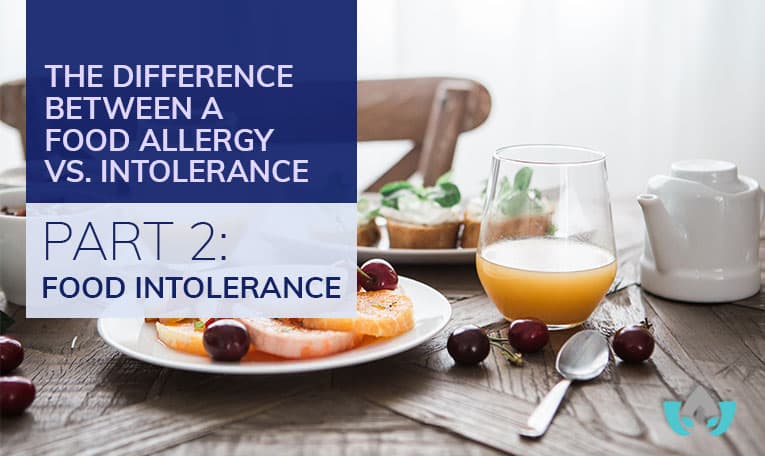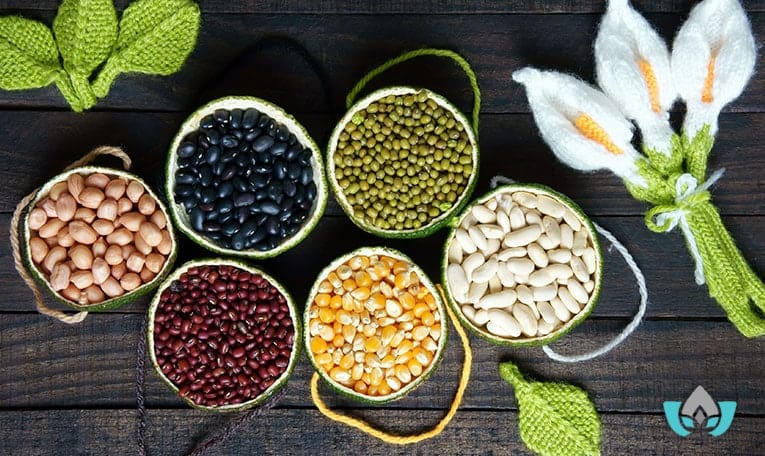
In our last article, we took a look at food allergies, what they are and what causes them.
Today we will have a closer look at food intolerances, the annoying cousin of food allergies.
Although they are often mistaken for each other, they have some important differences.
A naturopathic doctor can help you manage your food intolerance symptoms.
What Is A Food Intolerance?
Food intolerances are difficulties with digesting certain foods which do not trigger a response of the immune system.
This means although there may be symptoms such as digestive issues, there is no histamine released by the body in these cases.
Causes of food intolerance include:
● The absence of an enzyme required for proper digestion
● Chemical causes – certain chemicals in food and drink can lead to food intolerances, including chemicals in some cheeses, as well as caffeine.
● Naturally occurring toxins in foods such as undercooked beans
● Histamine which occurs naturally in some foods
● Salicylates, occurring naturally in plants
What’s The Difference Between A Food Allergy Vs. Food Intolerance?
The difference between a food allergy and a food intolerance is all in how the body responds to the food trigger.
Allergies elicit an immune response, causing the release of histamine which is what causes symptoms which we associate with allergies, such as coughing, hives, and wheezing.
Food intolerances often are often confused with food allergies – an intolerance is the response of the digestive system to certain foods.
For example, lactose intolerance, which results in uncomfortable symptoms when one drinks cow’s milk is due to an inability of the body to digest lactose. However, no histamines are released.
Common Symptoms Of Food Intolerance
Many of the symptoms of food Intolerance overlap with those of food allergies, such as:
● Bloating
● Migraines and headaches
● Cold symptoms such as a cough or runny nose
● Digestive issues such as a stomach ache or irritable bowel
● Hives
For this reason, it is not uncommon for food intolerances to be confused with food allergies.

Common Food Intolerance Triggers
Many of the same foods which cause food allergies can be triggers for food Intolerance.
These include:
● Lactose
● Wheat and gluten
● Caffeine
● Artificial sweeteners, colours, and flavours
Naturopathic Treatments For Food Intolerance
There are a number of ways in which food allergies and intolerances can be treated using natural means.
Let’s have a look at some of these now.
Avoid Your Intolerance Triggers
If you have identified that you have an issue with eating or digesting a particular food, the best thing to do is to avoid it altogether.
Consuming foods which trigger an adverse response in your body only puts stress on your system and does not give you time to heal properly.
Avoidance of trigger foods gives your body the opportunity to calm down and begin to heal itself from the damage that has been done.
Sometimes this is easier said than done. If you’re lactose intolerant, for example, you’ll find dairy in places you wouldn’t expect, including most baked goods and packaged foods.
Address Any Gastrointestinal Issues
If you have been experiencing gastrointestinal issues, there are supplements which can help to address them.
Digestive enzymes which aid the digestive system in breaking down particles may be taken to help your body fully break down food particles.
Probiotic supplements can help the immune system deal with food, and MSM (Methylsulfonylmethane) supplements can help to improve immune function and decrease inflammation.
Vitamin B5 is a vitamin which can help to maintain the health of the digestive tract, and L-glutamine can help repair leaky gut.
Eat A Gut-Healing Diet
There are many foods which can help to nourish and heal gut health issues.
Prebiotic foods such as kimchi, kombucha, and sauerkraut can help restore balance in the gut.
Polysaccharides are foods which can help to rebuild your gut flora, and include “slimy” foods such as onions, okra, eggplant, and aloe gel.
You can also take probiotic supplements, but these should be done only under the direction of a naturopathic doctor.
Contact The Mindful Healing Clinic
Are you concerned with the toll food intolerances are having on your body?
Do you need help identifying your food triggers, or managing the ones you already know about?
The Mindful Healing Clinic can help – contact us today to set up a consultation.
Until next time,
Dr. Maria Cavallazzi, N.D
Mindful Healing Naturopathic Clinic
Mississauga, ON L5M 1L7
(905) 819-8200
► https://g.page/MindfulClinicNaturopathic
Dr. Maria Cavallazzi is a medical doctor from Colombia where she practiced as a family physician for 8 years until she moved to Canada 16 years ago and became a naturopathic doctor in Mississauga.


